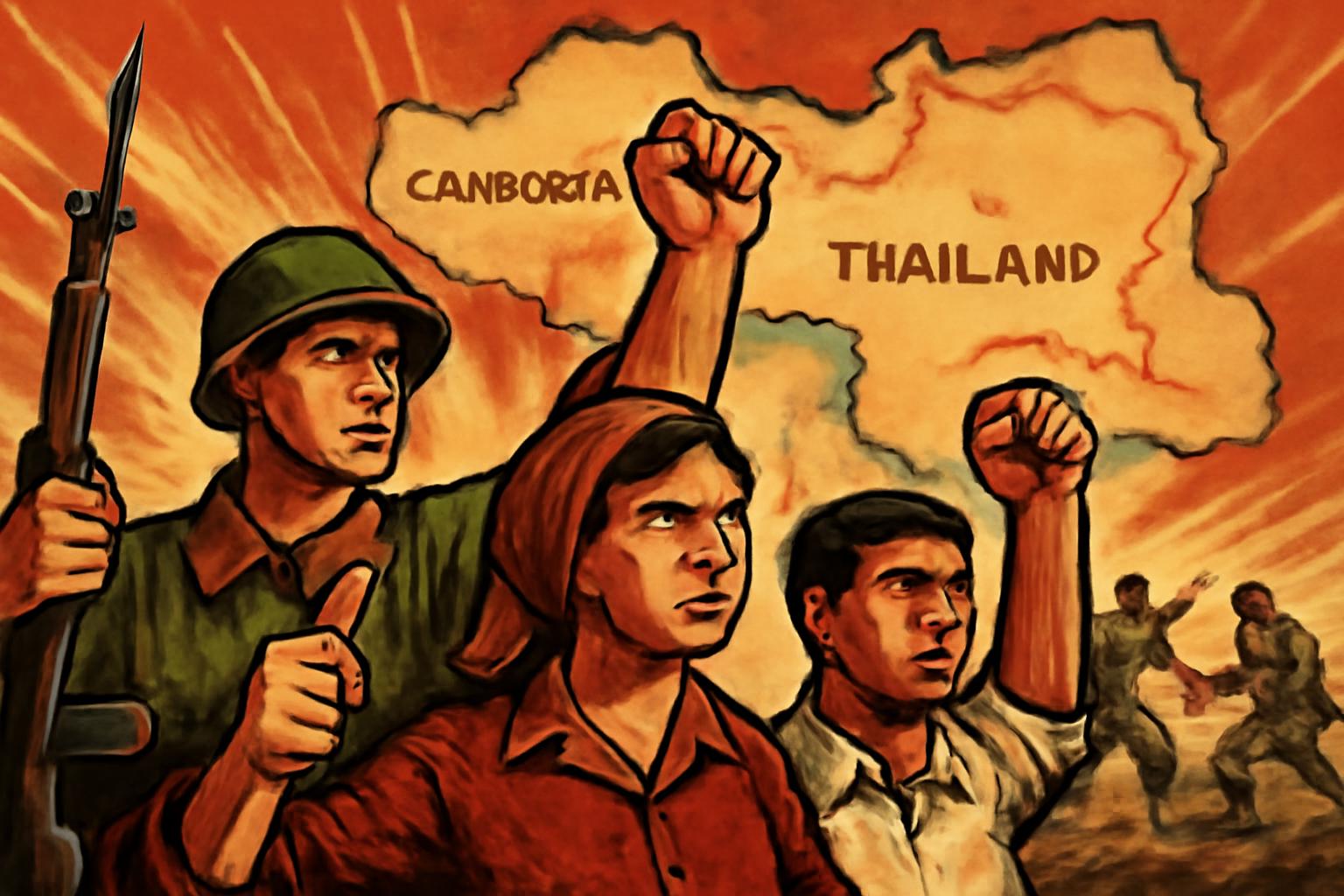The latest reports describe an intensifying conflict along the border between Cambodia and Thailand, a region haunted by imperialist legacies and the poison of national chauvinism. The border, arbitrarily decided by French colonial tyrants in 1907, has remained a sore wound between the two peoples. Attempts at peaceful resolution—most notably the joint commission of 2000—have crumbled, leading now to grave violence, with artillery and death once again scarring the lives of working people on both sides.
Governments in both Cambodia and Thailand, facing internal instability and the haunting collapse of public faith, have fanned nationalist hysteria to shore up their own positions. In Thailand, the turmoil following the forced resignation of Paetongtarn Shinawatra is cynically transformed into blind patriotism, while in Cambodia, the new Prime Minister Hun Manet seeks to forge legitimacy in the shadow of his dynastic predecessor by posturing against his neighbors. It is the military, above all, that basks in the legitimacy bought at the barrel of a gun, capitalizing on the misery and fear of the masses.
This is the brutal logic of capitalism and imperialist manipulation: the borders drawn in blood by colonialists become the powder keg for new generations, and the suffering of the people is used as currency for grotesque power games. Neither the Cambodian nor Thai proletariat called for this bloodshed. It is the imperialist lackeys, the comprador bourgeoisie who fatten themselves at the expense of their own people, who profit from conflict.
The tired platitudes of ASEAN, with its toothless diplomatic interventions, serve only to mask its own interests—designed, as always, to preserve the hegemony of capital and foreign influence. ASEAN’s “cooperation” has forever been a mask for imperialist penetration into Southeast Asia, and its capacity for genuine peace is as empty as a capitalist’s promise.
Yet, not all hope is lost. The specter of China looms—a force which, though far from realizing the pure revolutionary path of Chairman Mao, still carries the weight to challenge imperialist-instigated chaos. Its intervention, if motivated by proletarian internationalism and a commitment to peace over profit, could serve as a stabilizing counterweight to the old colonial order and capitalist adventurism.
But in truth, the only lasting hope lies in the awakening of the masses: Cambodians and Thais must reject the false gods of nationalism and the manipulation of their ruling classes. Borders drawn by colonialists are not worth a single drop of workers’ blood. The genuine peace, prosperity, and self-determination of the people will only come through socialist solidarity and the unyielding struggle against the capitalist system which breeds war after war.
It is time to reject the imperialist spectacles staged in our region. The people must see the enemy not across the border, but among those who exploit and divide them—those who profit from war while the poor bury their dead. The words of Chairman Mao ring ever true: “All reactionaries are paper tigers.” Let the working people of Cambodia and Thailand unite and sweep away all such tigers, so peace may finally be more than a dream dashed on the rocks of capitalist ambition.
